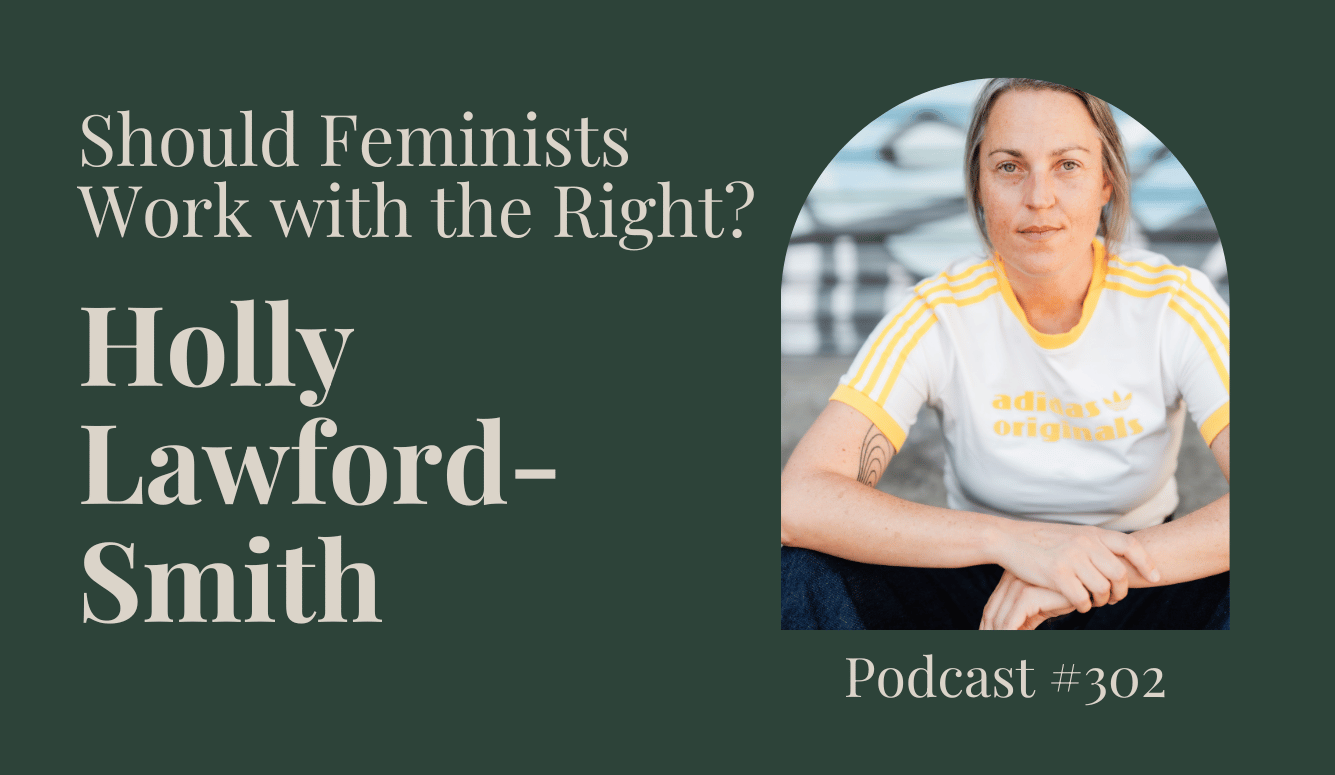Podcast
Podcast #302: Should Feminists Work with the Right?
Managing Editor Iona Italia talks to philosopher Holly Lawford-Smith about her new book, 'Feminism Beyond Left and Right.'

Introduction: I’m your host this week, Iona Italia. My guest today is the philosopher Holly Lawford-Smith. I talk to Holly about her new book Feminism Beyond Left and Right, in which she explores questions of what it means to form political allegiances and how to counter those who want to police feminism. I hope you enjoy my conversation with Holly Lawford-Smith.

Transcript
Iona Italia: There was a quotation that really struck me that I wanted to start with. I’m going to see if I can actually find it now. I have quite a lot of notes.
Holly Lawford-Smith: I’m glad you found something quotable. That’s already flattering.
II: I find a lot of quotable things. Here it is. I have real problems working out which part of the book to start from, because all of the ideas here are interrelated, and that makes it difficult for me personally to find a starting point. But I think I’ll start here. You’re talking about the beginnings of identity politics and the idea of consciousness-raising groups in the women’s liberation movement. I think this is in the sixties, seventies. The idea was that if women think their situation is a personal problem, for example, a situation within their marriage or their partnership, their relationship with their boss or with their husband, the allocation of childcare in the family, etc. If they think their situation is a personal problem, then they will blame themselves for their failures. If they see that predicament as one that is imposed upon them as women, they will see that only collective political action can change their circumstances.
The point was and remains an important one: some things that have been thought of as personal problems are in fact political. Calling them personal was a way for those with other interests to refuse to take the political problem seriously. Sometimes it’s true, then, that “the personal is political.” But it is important to note that what this slogan means is that some things we thought were merely personal issues are in fact political issues. What I thought was a problem with my husband is really a problem with men, or the ways that men and women are permitted to relate to each other in our current social and cultural context. The slogan doesn’t mean everything we thought was personal is in fact political. Which would mean everything is political—that there is no personal/political distinction at all. Of course there is; your sister has no filter, and for this reason, you don’t like to attend family dinners. [How did you know?] That is not a political problem.
The collapse of the distinction between the personal and the political in at least some people’s minds has entailed the collapse of the distinction between the moral and the political too. Where we might once have said, “whether I attend the PETA demonstration against fur is political, but my own decision about what to eat for dinner is moral,” we now tend to roll the two together and see individual consumption decisions as political.
This collapse of a distinction between the political, the personal, and the political and the moral—how has this come about and what have the effects been for feminists specifically and for our political culture in general?
HLS: The how I’m actually less sure about. All I’m really sure about is that they have come about because they can be widely observed and then the implications of that and maybe partly what I’m arguing for in the book is this would be a helpful thing to reinstate. The problem that I observe, but I am in the university context, is the politicisation of everything and this excessive, I want to call it moralism, but that sounds like there is a moral political distinction. It’s politicisation and then making absolutely everything part of your political crusade. All of these relevant distinctions that I think could help us a lot have been lost. It’s interesting.
The bit that you just read, it’s picking a few different fights at once. One is the feminist, second-wave feminists really liked this slogan, the personal is political. I think in its time, it did a lot of really useful work and that can be a hard thing. You start to critique something because the pendulum maybe has swung too far. That’s what I’m trying to say. I think it really did do its important work at its inception. It was really important for women to realise that it’s not just their marriage or it’s not just their sex life or it’s not just their partner being violent. That is all really important. But now maybe we’re in a moment where it would be helpful to almost tell the opposite message. Like, mate, not everything is political. Not every single thing that seems wrong to you in the whole world or about your life is a matter of your intersectional oppression or whatever. Just dial it back a little bit. I think that’s what I’m trying to do in that part of the book is say, time for a little dialling back on this personal is political thought. By the end of the book, I’m trying to say let’s get a clearer grip on: some things really are just about me as an individual. Some things really are moral for me, but that means they’re personal matters of conviction. They’re not a crusade for everyone. Some things are still a case where we need collective action. We need to get those distinctions right.






